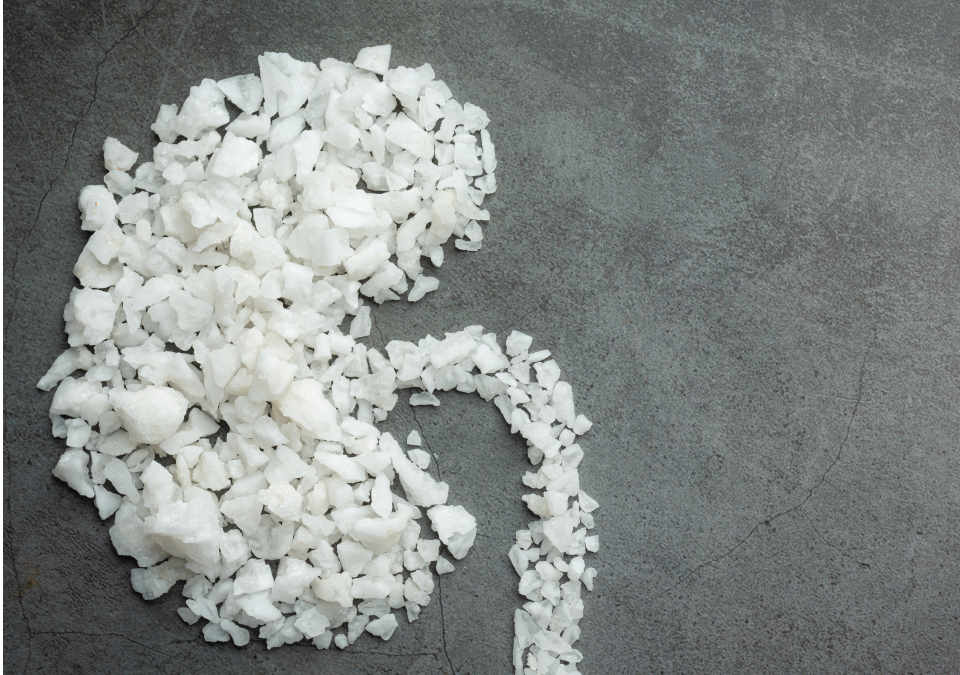
Common Skin Conditions That Pose A Higher Risk For Diabetes Patients
January 3, 2022
Important Skin Care Practices That Every Diabetes Patient Should Follow
January 10, 2022Chronic kidney disease (CKD) occurs when there is permanent damage to the kidneys, and they are no longer capable of removing toxins and waste from the blood. It is one of the most common yet dangerous complications of diabetes, as CKD may even lead to kidney failure. Therefore, detecting CKD at an early stage is extremely important. It allows you time to slow down the progression of the disease and control any adverse consequences.
What Are The Causes Of Chronic Kidney Disease?
There may be many causes for CKD. However, the two leading causes of chronic kidney disease are diabetes mellitus and hypertension or high blood pressure levels. Elevated albuminuria, smoking habit and heart diseases are some of the other factors known to increase the risk of CKD.
Can Chronic Kidney Disease Be Reversed?
Chronic kidney disease is mostly irreversible. However, you can slow the progression of CKD by following dietary regulations, adopting healthy lifestyle changes, controlling blood pressure levels and managing your diabetes.
How To Slow The Progression Of Chronic Kidney Disease?

Follow These Dietary Recommendations:
- Limit the consumption of foods rich in sodium to control your blood pressure levels. One of the best ways to reduce salt consumption is by substituting it with other seasonings such as paprika, black pepper, mixed herbs, ginger, coriander, garlic, etc. You should also avoid eating packaged foods that mention low-sodium or no-sodium content as they are rich in potassium and can adversely affect your kidney health.
- Avoid eating protein excessively. If you have CKD, you should eat protein in an optimum quantity, or else it may increase albuminuria and worsen your kidney health. Some of the good sources of protein which you should eat in limit are eggs, chicken, beans and nuts.
- Limit or restrict eating saturated fats, such as the ones found in fatty cuts of beef, pork, lamb, etc., as they can build up in your heart and kidney. Maintaining your heart health is essential to controlling CKD. However, you can eat unsaturated fats such as the ones present in olive oil, nuts, etc.
- Eat a diet that helps you manage your diabetes. If you keep your blood sugar levels controlled, you can slow the progression of all diabetes complications, including chronic kidney disease. A healthy diabetes diet involves limited or restricted consumption of refined carbohydrates such as desserts, sweetened beverages, etc. It also recommends eating according to the portion size at regular intervals to avoid spikes in blood sugar levels.
Live A Kidney-Friendly Lifestyle:
- Quit smoking. Smoking is known to increase urine albumin, which can adversely affect the condition of CKD. It is also associated with the increased risk of stroke and heart attack in people suffering from chronic kidney disease.
- If you have CKD, you must remain physically active and exercise regularly for at least 20-30 minutes. It will help prevent heart diseases, control blood sugar levels and maintain healthy body weight, all of which aids in slowing the progression of chronic kidney disease.
Control Your Blood Pressure Levels:
High blood pressure levels can worsen the condition of CKD in your body. Therefore, controlling your blood pressure levels is necessary to manage the disease. For this, you should monitor your blood pressure levels regularly and eat a diet low in sodium. Many patients suffering from CKD are also given diuretics to help control hypertension as well as water and salt retention. Many times, patients are also prescribed medications to control blood pressure levels.

Reduce Albuminuria:
Having high levels of albumin in the urine can increase the risk of renal events. Therefore, lowering urine albumin is essential to slow the progression of CKD. Losing excess weight, eating less sodium and consuming less protein can help reduce albuminuria. In many cases, patients are also prescribed medications to control their levels of urine albumin.
Control Your Blood Sugar Levels:
Managing your diabetes is the key to slowing down the progression of CKD. Therefore, eat a healthy diet, adopt intensive glycemic control and remain physically active to control both diabetes and CKD.
Takeaway:
Chronic kidney disease is one of the most dangerous complications of diabetes. Kidneys are needed to remove waste and toxins from the body, and if they do not function at their full capacity, you may suffer from serious health issues. Therefore, controlling CKD is extremely important. Fortunately, there are many ways to slow down the progression of CKD. Some of the best ways to do so are mentioned above.
References:
- https://www.kidneyfund.org/assets/pdf/training/slowing-the-progression-of-chronic-kidney-disease.pdf
- https://www.cdc.gov/diabetes/managing/diabetes-kidney-disease.html
- https://www.niddk.nih.gov/health-information/professionals/clinical-tools-patient-management/kidney-disease/identify-manage-patients/manage-ckd/slow-progression-reduce-complications
- https://www.diabetes.org/diabetes/slow-progression-chronic-kidney-disease
- https://www.ncbi.nlm.nih.gov/pmc/articles/PMC4089661/
- https://www.kidney.org/news/newsroom/newsreleases/0314
- https://my.clevelandclinic.org/-/scassets/files/org/professionals/tactics-to-prevent-or-slow-progression-of-ckd-in-patients-with-diabetes




